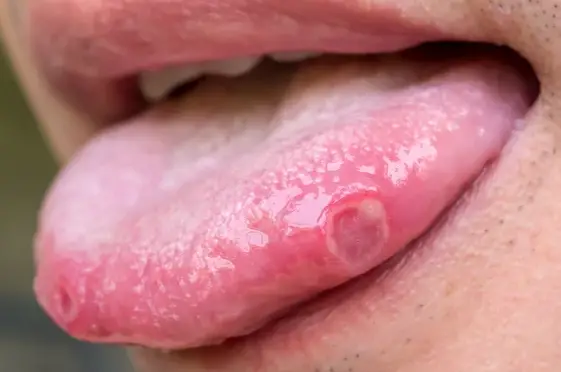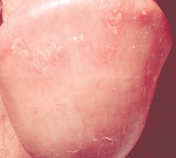Do you have an idea of what Herpes simplex is all about ? Is Herpes simplex an STD? Read this article to get more knowledge about Herpes simplex!
What Is Herpes Simplex
The herpes simplex virus is a viral infection that causes genital and oral herpes.
Herpes simplex is also known as HSV can be sexually transmitted, but the virus can also be transmitted in other ways. There’s a lot of stigma around herpes, but the virus is very common.
In most cases, people live with asymptomatic HSV, which means they have the virus without ever having an outbreak or active episode of herpes.
Types Of Herpes
There are two types of herpes simplex : Herpes simplex virus 1 and Herpes simplex Virus 2
HSV-1: This type primarily causes oral herpes, characterized by cold sores or fever blisters that appear around your mouth or on your face. HSV-1 is typically spread through direct contact with contaminated saliva or other infected bodily secretions.


HSV-2: This primarily causes genital herpes, which involves sores that appear on or around your genitals, anus, buttocks, and inner thighs.
Sores can also develop inside the front passage. These two herpes are usually transmitted through oral and genital contact.
Sometimes a herpes infection can affect other parts of your body, such as your eyes or other parts of your skin.

Causes Of Herpes Simplex Virus
Herpes simplex viruses spread from person to person through close contact. You can get a herpes simplex virus from touching a herpes sore. Most people, however, get herpes simplex from an infected person who does not have sores. Herpes Virus can be transmitted through the following ways:
- Having sex without using protection, such as a condom
- Having any oral or genital contact with a person who has herpes
- Having different sexual partner
- Sharing sex toys
Symptoms
Many people with the infection never experience any herpes symptoms. If you do notice symptoms, you’ll experience them differently depending on whether you’re having your first herpes outbreak or a repeat outbreak. Recurring symptoms are usually milder than the first outbreak. The followings are signs that you may have contacted HSV
- Pain while urinating.
- Sores on their genitals or around their anus.
- Tingling, itching or burning.
- Fever, swollen lymph nodes or muscle aches.
- Cold sores around their lips, mouth or tongue. They may look crusty or like fluid-filled blisters.
- unusual tiredness or fatigue.
How Is Herpes Diagnosed?
If you notice any of the above symptoms ,especially blisters ,a doctor or clinician can diagnose HSV by examining the blisters. They might also ask about other symptoms, including flu-like symptoms and early signs, like tingling or burning. Your doctor is likely to request a culture test to confirm the diagnosis. A culture involves swabbing fluid from the sore and sending it to a laboratory for testing.
Prevention
The safest way to prevent herpes virus is to abstain from sex. There are other ways too, they include:
- Use condoms: Condoms are the best way to prevent STIs when you have sex.
- Get tested: Be sure you and your partner are tested for STIs before having sex with each other.
- Limit your number of sex partners.
Treatment
There is no cure for herpes. However, daily use of antiviral medicines can prevent or shorten outbreaks. Antiviral medicines also can reduce the chance of spreading it to others.
Conclusion
Herpes simplex virus is a viral infection that can cause blisters or sores to develop around the mouth or genitals, though some people never develop symptoms. You can prevent the spread of herpes by practicing safe sex and personal hygiene, such as washing hands during an outbreak.
There is no cure for this virus, however, there are medications to reduce the viral load of this virus. You can as well see a doctor if you notice any of the above symptoms.

